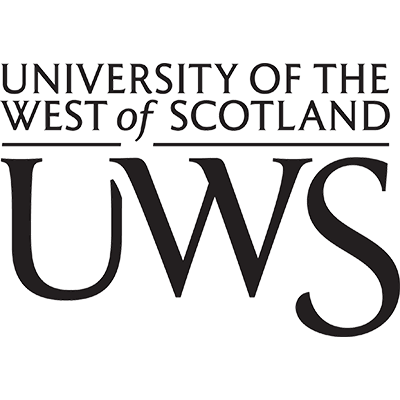Events Management
Award
BA (Hons)
Duration & study mode
4 years full-time, typically 6 years part-time
School
Business & Creative Industries
Location
Paisley
Additional information
Ucas code
N820
Course starting dates
-
Paisley: September
Fancy learning about the important role events have in society and the skills required to plan and stage events to run like clockwork? Then UWS’s BA Events management programme is designed to take your knowledge and skills to the next level.
You’ll learn about managing projects, budgets and risk management and other operational skills needed to stage events and will develop your understanding of the important role that events have in communities at a local national and international level. You will learn ways that events can be managed to achieve sustainability goals and have a positive impact on society.
With close industry partnerships and regular guest lectures from events professionals, the content delivered on this programme aims to provide you with insight and experience of best practice across a range of events sectors, including business events, conferences, sports, music and a range of community festivals.
Work placement opportunities available through the School of Business & Enterprise allow students to put theory into practice in real-world business environments.
Broaden your horizons, learn a new language and prepare for the best international opportunities available with study abroad at UWS.
UWS offers professionally focused Business courses, providing students with sought-after skillsets to succeed in commerce and industry.
We place a high value on promoting entrepreneurship, partnering with the Princes Trust to support our business students to become self-employed or to set up their own business.
Our recent graduates are now working with some of the biggest names in business including RBS, Shell, Ford and IBM.

We welcome Scottish, UK and international students and consider all applicants on an individual basis.
Don’t worry if your qualifications are not listed here, we take a range of factors into account when assessing your application and are happy to consider other alternative combinations of qualifications and experience.
If you are applying with an EU or non-EU qualification, please check our Undergraduate Entry Requirements page which gives more information about country-specific entry requirements.
* for more information on standard and minimum entry requirements, see our Undergraduate Entry Requirements webpage
For applicants whose first language is not English, the University sets a minimum English Language proficiency level. The qualifications below must have been gained within two years of the start of your course.
General English language requirements at UWS: International English Language Testing System (IELTS) Academic module (not General Training)
Exceptions to this level of IELTS scoring exist for some accredited or professionally-recognised courses (see section below for more details).
SOCIAL WORK DEGREES
For our BA (Hons) Social Work and MSc Social Work programmes, applicants are required to have an IELTS score as follows:
All stated English tests are acceptable for admission for both home/EU and international students for this programme:
For our research degrees (MRes, MPhil, PhD, DBA, DProf) applicants are required to have an IELTS score as follows:
For Health, Nursing & Midwifery courses that lead to, or require professional registration with the Nursing & Midwifery Council, applicants are required to have an IELTS or Occupational English Test (OET)*.
For such courses, the IELTS score is as follows:
* Note that the Occupational English Test (OET) will now be accepted in addition to IELTS as proof of a Nurse's English Language Competence (Nursing & Midwifery Council, 2019).
For our BSc (Hons) Applied Biomedical Science, BSc (Hons) Biomedical Science and MSc Advanced Biomedical Science programmes, applicants are required to have an IELTS score as follows:
For our Certificate of Higher Education courses, applicants are required to have an IELTS score as follows:
TOEFL IBT*: 78; no sub-test less than:
* Please note that TOEFL is still acceptable for admission to this programme for both home/EU and international students.
For international students, the Home Office has confirmed that the University can choose to use TOEFL to make its own assessment of English language ability for visa applications to degree level courses. We therefore still accept TOEFL tests taken in the last two years for admission to this programme.
West African Senior School Certificate of Education (WASSCE) including acceptance of WAEC Scratchcard*
*UWS will accept a WAEC scratchcard confirming that an applicant has achieved C6 or above as evidence of meeting English language requirement from Nigeria if the student graduated within the last 5 years. After 5 years applicants would be required to provide the WAEC Certificate.
Applicants who do not meet the minimum English language requirements have the option to study one of our preparatory and pre-sessional English courses. The UWS courses available are:
The BA Events Management course focuses on the development of operational and managerial skills across a range of events industry sectors, including project management, legislation and risk management – all essential skills for the professional events manager.
You will explore a range of event management processes and have direct involvement in the planning and staging of live events.
This is the foundation year where you will be introduced to a range of subjects relating to the wider context of business management including marketing, finance and managing people. In addition to the core events management specific module Discovering Live Events, you also have the option to tailor your studies through a range of option modules including tourism and enterprise.
This is the planning and operational year for Events Management. Knowledge and understanding of event planning, consumer behaviour and their impacts on society is expanded through staging a live event.
This year focuses on management and experiences for events. You will develop specialised knowledge of events management in a broad range of contexts including business events, conferences, sporting events, and the live music scene. As well as gaining insights into the psychological aspects of the event experience you will learn how to manage resources and develop relationships with sponsors and stakeholders. This year will also involve developing research skills and knowledge in preparation for the final year.
This year looks to global aspects, the future, and advances in the events industry. In this Honours year you will complete an events-based dissertation. Further specialised study takes strategic view of event policy and global trends.
You will be taught through a combination of lectures, tutorials and workshops.
You will also have the opportunity to take part in group work and independent learning to develop your transferable skills such as research, presentation, communication and working as part of a team.
Our Events Management degree is assessed using a variety of assessment methods including:
Career choices include event manager, working in sports venues, conference management, product launches or fundraising for voluntary organisations.
Volunteering and work-related opportunities are offered to student to students at all stages of the programme. Students have progressed through grasped opportunities with People Make Glasgow, Scottish Athletics and Diabetes Scotland amongst others.
Some graduates choose further study, leading to a MSc in Event Management.
£1,820 cost per year of study (usually paid by the Scottish Government via SAAS*)
£9,250 Cost per year of study, but not more than £27,750
£9,250 Cost per year of study, but not more than £27,750
£15,500 per year of study
£305 per module (20 credits)
£1,550 per module (20 credits)
£1,550 per module (20 credits)
£2,580 per module (20 credits)
All UK and EU applicants for undergraduate study, not applying through an agent or partner, must apply through UCAS (Universities and Colleges Admissions Service).
UCAS codes for UWS
If you are applying from a non-EU/EEA country for entry to one of our Bachelor’s degree courses in September, and have not applied already via UCAS, or have not applied to another UK university, then you may apply via our dedicated online application system.
For more information on when and how to apply to study at UWS please refer to our Undergraduate Application Guide.
An ATAS certificate is not required for overseas students applying for this course.
An error occurred. Please try again.
Thank you for completing our contact form. We will be in touch shortly.

Business & Enterprise
We will always try to make sure that we publish accurate course information but we do not accept responsibility for any mistakes or omissions. We will also try to make sure that we deliver our courses in line with our published information. However, we may not always be able to do so and you can find further information about this in our enrolment terms and conditions.